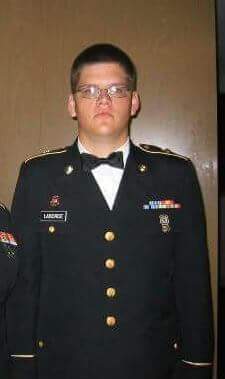By Joy Sutton
Silent No More – A Word of Warning This Veterans Day
“We knew he was struggling. We just didn’t know how bad.”
As Simone Jeansonne shares the story of what happened to her brother-in-law Jack, she is doing her best to hold back tears. This year he was supposed to be celebrating a milestone, his 30th birthday. Instead, his family has spent this year grappling with his death and how a young man with so much promise and potential is no longer here.
On April 9, 2016, Jack committed suicide at his home after five years of suffering with a service-connected mental disability from serving a year overseas. During that year overseas, his best friend, who was serving with him, committed suicide and a close personal female friend in his unit was attacked by a civilian Nigerian contractor on base.
He returned home a changed man. Over the years, he led his family to believe he was managing it all. He was even working as a counselor at the Veterans Administration (VA) and assisted the homeless veterans.
Hiding feelings doesn’t work
“They [veterans] don’t want anyone else to know how they feel,” says Simone. “They feel they can handle it. But they can’t.”
 After his death, several of Jack’s journals were found and revealed a lot about his state of mind. The family also discovered he was struggling with substance abuse in relation to the amount and constant change in his medications.
After his death, several of Jack’s journals were found and revealed a lot about his state of mind. The family also discovered he was struggling with substance abuse in relation to the amount and constant change in his medications.
“When you see someone take several journals and literally go line to line, for 10 pages straight, with just abstracting writings, scribbles, and phrases such as ‘will I be forgiven, what was the purpose, father forgive me, why do I fight these demons,’ you know something is wrong. It’s their brain. And then to see his living conditions, I was like, oh my God. We had no idea it was this bad. We lived two hours away, and he always told us everything was great.”
PTSD and substance abuse go hand-in-hand
For Simone, it was a reminder that this could happen to any family. After all, she had spent the last six years working as a licensed practical nurse (LPN) in the substance abuse treatment field. Simone has witnessed countless times how PTSD, mental disabilities, bipolar disorder, and substance abuse often go hand-in-hand and the toll it is taking on our nation’s veterans.
Veteran drug addiction statistics
The Substance Abuse and Mental Health Services Administration (SAMHSA), reports the following statistics:
- Approximately 18.5% of service members returning from Iraq or Afghanistan have post-traumatic stress disorder (PTSD) or depression
- Between 2004 and 2006, 7.1% of U.S. veterans met the criteria for a substance use disorder
- Approximately 50% of returning service members who need treatment for mental health conditions seek it, but only slightly more than half who receive treatment receive adequate care.
That’s why Simone is on a personal mission to help as many veterans as she can through her job at Townsend Treatment Centers in Louisiana.
“I’m saving a life,” she says. “I’m fighting for them.”
Townsend is also part of American Addiction Centers which offers a specialized treatment program for veterans and other first responders called First Responder Lifeline.
This Veterans Day, Simone hopes by sharing her story it will be a wakeup call for veterans who may be struggling to ask for help and to let their families know what is really going on because they don’t have to fight this battle alone.
“Silence is deadly. Don’t ever remain silent. Speak up and speak out.”
Are you struggling this Veteran’s Day?
If you or a veteran you know is struggling with drug or alcohol abuse and co-occurring disorders, such as PTSD or depression, call the First Responder Lifeline at 888.902 VETS (8387) or visit americanaddictioncenters.org.









Related Posts